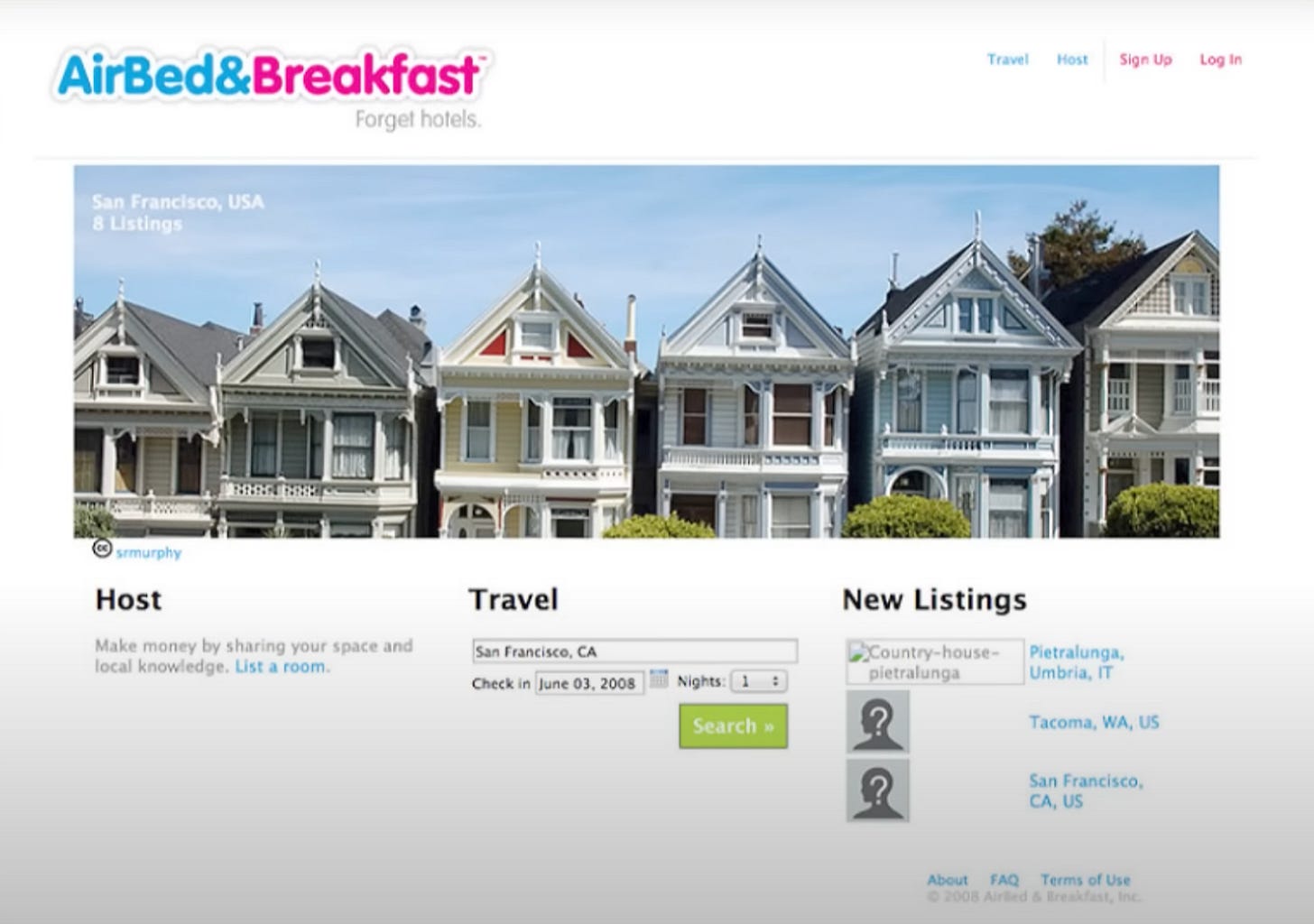🕵️♀️ How AutoGPT affects your business, The art of building an MVP, ...
Hello!
Adam Thornhill here.
“The Podcast Guy” who saves you 10+ hours a week.
Ready for the 57th edition of Best Business Podcasts?
Here are the best bits from Lenny’s Podcast, Y Combinator, and All In.
💪🏽 Harness the power of naïveté
🎨 The art of building an MVP
🕵️♀️ How AutoGPT affects your business
Can you help?
Before we dive in, I need your help to point me in the right direction.
I’ve had a lot of people ask me to write another version of this newsletter, but focused on a niche.
💪🏽 Harness the power of naïveté
🥉 Third place (3 min read vs 1 hour 1 min listening)
Society puts too much emphasis on experience. If you want to truly innovate, you need a bit of naïveté. By approaching challenges with an open mind and a willingness to question established norms, you can transform industries.
What they say
Laura’s story
The word naïveté gets a bad rap. But naïveté is the definition of creativity and white space.
I was naïve when I started Bobbie [a baby formula company] about how regulated the industry was, the stigma associated with it, and how hard it would be. But that allowed me to look at the status quo differently.
I’ve applied those same principles to hiring. I think the people who have an ounce of naïveté to what it takes to succeed are the ones that are going to drive the biggest impact.
Laura Modi
MrBeast’s story
I love that. It makes me think of a couple things that I'll share real quick.
(1) I was listening to an interview with Mr Beast. When he hired someone from a traditional Hollywood background he was like 'They know what they're doing. They're going to help me scale.'
Now, he's like 'Every time they never work out. They slow everything down.'
He finds that young, hungry, hard-working people end up working a lot better.
(2) The other interesting insight is I'm doing a series on how the biggest B2B companies started. So far, I'm finding 70% of the founders had no specific background in the area they went in.
Lenny Rachitsky
What I say
Why it matters: Many of the worlds biggest companies were started by founders in their 20s. Take the Collison brothers. Patrick and John were unconventional thinkers, unburdened by industry norms. Their fresh perspectives on the payments industry turned Stripe into a $50B behemoth.
Sadly, most of us lose this trait as we age. The more we gain - with our career, property, and children - the more we have to lose. We play it safe rather than dreaming up bold solutions. We accept ‘this is the way it has always been done’ rather than pushing back and asking why.
Between the lines: So how do we recapture naïveté? Confidence. If we believe in our ability to find a new job or to start a new company, then we’ll have the confidence to follow our curiosity, question assumptions, and take calculated risks.
Help others do the same by giving them freedom to experiment, even if it means doing things differently. They’ll make mistakes along the way, sure, but they’ll also instigate change and defy your expectations.
🎨 The art of building an MVP
🥈 Second place (3 min read vs 16 mins listening)
I know, I know. You can recite the definition of an MVP word for word. But hear me out. The principles of an MVP should be:
Reviewed regularly
Applied broadly
Shared widely
Get a recap from Michael Seibel, Managing Director of Y Combinator, about how to build a minimum viable product quickly.
Then learn how to apply these lessons more broadly and get everyone in your company to level up their decision making.
What they say
A few MVP reminders
You don't start your startup with all the answers. Building a startup pre-product market fit is all about learning.
How do you make sure you build an MVP quickly? Here are some tricks:
(1) Give yourself a very specific deadline. It's easier to make sure you're building an MVP if you give yourself two weeks or a month to complete it.
(2) Write down your spec. If you think there are five or ten features required to launch an MVP, write them all down.
(3) Cut back. Go through each one and ask yourself if there's a truly desperate customer need for that feature.
(4) Most importantly, don't fall in love with your MVP. It's going to change. You're going to iterate. It's going to get very, very different over time.
You want to fall in love with your customer, not with the crappy initial product that you're building to start learning.
Michael Seibel
Airbnb example
If you were a user when Airbnb first launched, here are things that you didn't get to experience:
(1) There were no payments. If you found a place on Airbnb you couldn't pay for it there. You had to arrange for payment some other way.
(2) There was no map view. There was no way for you to actually see where the places were in the city.
(3) You had to stay on an air bed. You couldn't rent out a whole house. You couldn't rent out a room.
(4) Airbnb only worked for conferences. They would literally spin it up in a city when there was a conference and they'd spin it down when it was over.
Michael Seibel
What I say
Why it matters: Launching an MVP allows you to gather crucial user feedback, validate your idea, and refine your product in line with customer pain points. Core tenants of building an MVP include:
Ruthless prioritization
Quickly deliver value
Embrace customer feedback
Adopt an iterative mindset
Remain open to change
Everyone from customer service reps to the CEO should evangelize these tenants. You can encourage this by:
Asking teams how a project will help achieve the company’s overall goals
Compressing timelines to tomorrow to force people to cut nice-to-haves
Making room in your calendar to make customer calls part of your routine
Integrating these tenants into your company values
Empowering everyone in your company to own two-door decisions
Between the lines: By setting specific deadlines and continuously reevaluating priorities, everyone in your company will make quick decisions, build momentum, and adjust course as necessary. You can take this a step further by adopting Shaan Puri’s motion first, direction second approach.
🕵️♀️ How AutoGPT affects your business
🥇 First place (3 min read vs 1 hour 33 mins listening)
AI innovation is compounding. ChatGPT is less than 6 months old, yet we’ve already seen the release of GPT-4, Plugins, and Incognito Mode. Now we’re witnessing pure magic. @SigGravitas, an indie developer, has created AutoGPT.
It’s your AI personal assistant and is designed to run autonomously. Learn from David Sacks as he breaks down AutoGPT in layman terms. Or if you’re a visual person, check out this quick explainer video:
What they say
Your personal assistant has arrived
If you go to ChatGPT you prompt it one at a time. You get your answer and then you think of your next prompt. You end up in a long conversation that gets you to where you want to go.
What AutoGPT can do that's different is it can string together prompts. You give it an assignment and the AI can basically prompt itself. You've got the basis for autonomy. That's what this project is designed to do.
Now the AI can take on complicated tasks. It can recursively update its task list based on what it learns from its own previous prompt. What you're seeing is the basis for a personal digital assistant.
David Sacks
Book me a wine tasting
I have a friend who's been playing with AutoGPT. He typed in 'You're an event planner AI. Can you plan a wine tasting trip in Healdsburg this weekend? Find the best kid-friendly place.'
Auto GPT broke that down into a task list. Every time it completed a task it added a new task to the bottom of the list.
AutoGPT searched the internet for a bunch of different wine tasting venues. It found a venue that had a bocce ball lawn area for kids.
It came up with a schedule and created a budget. My friend says he's actually going to a book the venue this weekend and use it.
David Sacks
What I say
Why it matters: AutoGPT goes beyond the traditional question-and-answer interactions of ChatGPT, allowing users to assign complex tasks to the AI. By self-generating prompts the AI can effectively manage complex projects and provide personalized assistance, revolutionizing your personal and work life.
Our children and grandchildren will look back and think ‘How did you survive without AutoGPTs?’ similar to how we ask the same question about the internet. We struggle to understand compounding, so it’s hard to fathom where we’ll be in 1 year from now, let alone in 10.
Between the lines: Our complex reasoning skills may deteriorate. AutoGPTs will present us with an option to proceed and we’ll simply say yes or no. How will this impact your business? Here are a few scenarios:
First movers win. Once you use a brand, AutoGPTs may recognize this and default to presenting you with the same experiences you’ve had before.
AI agents will be ruthless. They won’t be impulsive and care about emotion. They’ll make rational decisions.
Price matters. AI agents will stringently work within budgets for anyone putting a cap on how much to spend.
Note, these quotes were pulled at different points of the episode. Some sentences were left out to make the narrative more concise. I am not associated or affiliated with any podcast (unless otherwise stated). All roundups are independently written and do not imply any sponsorship or endorsement by the podcast.

















